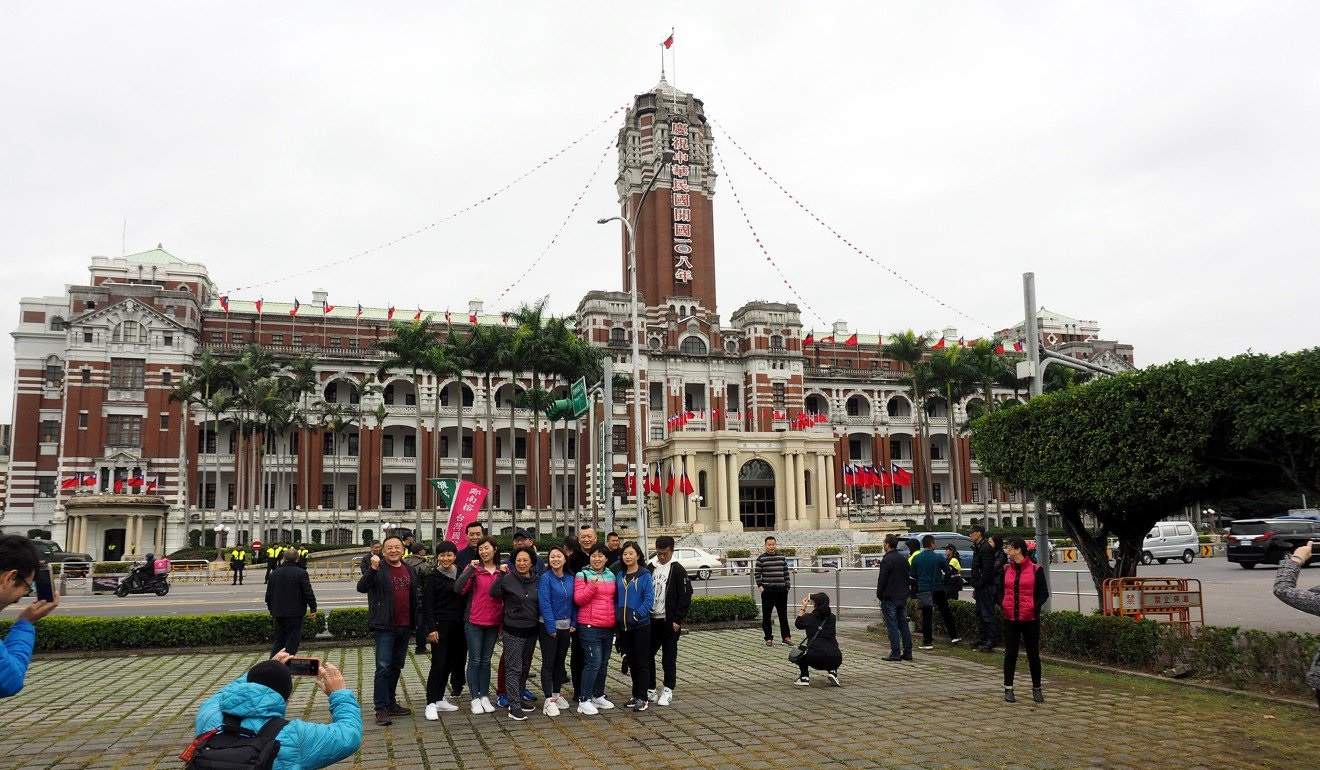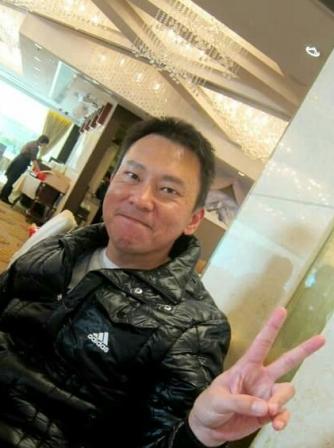China announced that it would suspend the individual travel permit to Taiwan with effect from 1st August 2019. There was almost no reaction time as most only received news about the suspension on the 31st July, one day before the actual date. A conservative estimation suggests that this suspension would affect as many as 700,000 individual travelers from mainland China. On average, individual travelers from the mainland spend an estimated USD250/day per person. Therefore, mainland Chinese tourists are a source of precious income for Taiwan’s many tour related businesses and the measure could cost Taiwan US$900m by Januaury 2020. As usual, the officials from Taiwan-Mainland Relations Department complained about mainland‘s unilateral decision to withdraw the permit. Many from the KMT worried that this would give President Tsai Ing-wen another weapon to fight her re-election bid. But, this time around, Tsai was rather quiet about mainland’s decision. One possible reason is that Tsai knows that the decision is based on Tsai and the Democratic Progressive Party (DPP) ‘s role in the current “extradition bill” crisis.

Wait⋯⋯isn’t the crisis funded by the NED and CIA? This is correct but it goes much deeper.
The case originated when a young Hong Kong student, Chan Tong-kai, 20 and his girlfriend, Poon Hiu-wing, 20, took a vacation in Taiwan. During the trip, Chan found out that Poon was pregnant with another man’s child and brutally killed her. He packed the body into her suitcase and discarded it, and took a flight back to Hong Kong. Since there is no extradition agreement between the Chinese cities, the Hong Kong government could not do anything except to keep him in custody for anti-money laundering violations. Meanwhile, the Hong Kong government tried to push through an amendment bill to, hopefully, get the young man extradited to Taiwan for trial. Who would have thought that a considerate move by the Hong Kong government would end up in a firestorm?
Indeed, Carrie Lam, and her SAR administration, has underestimated the forces behind the revolt. What was supposed to be a protest against the extradition bill evolved into a call for the resignation of Carrie Lam, and the process of universal suffrage. Which is reminiscent of what happened 30 years ago in Tiananmen Square, and the timing could not have been more “right”. 22 years have passed since the handover and the “One Country Two Systems” basically kept Beijing out of the local political scene. It gave the pro-west opposition parties opportunities to convert at least 3 generations of Hong Kong youngsters into diehard anti-communists. Sensing a rise of separatist movements, I wrote the story behind the Tiananmen Incident last year, and the birth of pro-Independence Taiwanese and Hongkongers. The pro-Independence first gained recognition in 2012, when a teenage boy, Joshua Wong, shot to fame for leading a group of students to challenge the Hong Kong government’s push for the National Education to be taught in schools, claiming that National Education was brainwashing by the Communists. Uninformed Hongkongers, especially the parents of kids attending primary and secondary schools, were shocked by the claim. Fearing that Mao’s doctrines would be spoon-fed to the students, these Hongkongers took to the streets to protest against the National Education. Wong, and his accomplices went as far as conducting hunger strikes. Finally, the Hong Kong government had to back down and cancel the National Education policy, and not coincidentally, the opposition won big during the 2012 Legislative Council Election a week later. Wong became a darling of the opposition and “Guaido” of Hong Kong, the “Chosen One” to further the US national interests in the city.
Meanwhile, Taiwan’s political scene was also changing. Years ago, the then President Lee Teng Hui of the Republic of China, introduced education reforms to focus on the Taiwanese identity and minimizing the Chinese identity, eventually to discard it entirely. The movement is also bearing fruits. Young Taiwanese have no loyalty to the Republic of China, and want a separate country from China. Many of these young Taiwanese supported DPP, the political party with a pro-Independence party mandate. In 2014, fringe groups with ties to the DPP launched a challenge to the ruling party, the KMT, by violently breaking into the Legislative Yuan to stop the ruling party from ratifying the Cross-Strait Service Trade Agreement (CSSTA). DPP lawmakers sat with the rioters, occupying the Legislative Yuan for 23 days. This was known as the “Sunflower Movement”. The success of Taiwan’s independence movement gave Hong Kong pro-Independence movement a boost in confidence. The Hong Kong pro-Independence protesters organized a movement of their own, originally coined the “Occupy Central”, later known as the “Umbrella Movement” in 2014. The protesters occupied roads in Admiralty just outside the Hong Kong Government Headquarters, in Causeway Bay Shopping district, and Mongkok, causing inconvenience to the public for 79 days. Although the “Umbrella Movement” was not a success, it was the first time separatists from Taiwan and Hong Kong shared ideas and learned from each other. It was also the first time Hong Kong localists tasted the “joy” of using violence as a tool to further their cause. This led to an even more violent act during the Chinese New Year in 2016.
2019 is special because it is the 30th anniversary of the Tiananmen Square Incident, a date that both Taiwan and Hong Kong could utilize. Tsai Ing-wen, the incumbent President of the Republic of China, needed an issue to help her upcoming re-election bid. DPP has just suffered a major setback in the 2018 municipal election, and her incompetence and dictatorial rule over Taiwan caused her to lose popularity. However, Tsai managed to regain some supporters by acting tough against China and linking Xi’s Open Letter to Taiwan at the beginning of the year to a potential forced unification. DPP saw an opportunity in sponsoring a Hong Kong version of “Sunflower Movement” to further associate the current crisis with failure of the “One Country Two Systems”. The Hong Kong separatists have been receiving training in Taiwan, and they would prove to be valuable in the riot.

After the initial violent acts, between a dozen and 60 Hong Kong separatists have allegedly fled to Taiwan and offered safe houses while others are been aided by civic bodies. Money and supplies of protective gears, masks, and non-lethal weapons have been flowing into Hong Kong from Taiwan on a regular basis until recently. Although Tsai continues to deny DPP’s involvement in the Hong Kong riots after Beijing decisively suspended the individual travel permit, Joshua Wong and lawmaker Eddie Chu arrive in Taiwan this week and meet DPP to seek further support. Predictably, Tsai is determined to milk as much as she can from the current crisis to secure her re-election. As a result, I would foresee more retaliatory measures from not just Beijing, but also from Hong Kong.
All these would not have been possible without the help of the US. Next Media tycoon Jimmy Lai, a known anti-China activist and the owner of anti-China newspaper, Appledaily, who bankrolled the 2014 “Umbrella Revolution”, met US Vice-President Mike Pence and Secretary of State Mike Pompeo about the “extradition Law” and the city’s situation. Mark Simon, Lai’s assistant, whose dad was in the CIA for 35 years, and himself a possible CIA spy as well said Lai “thanked Secretary Pompeo for the administration’s concern about human rights, and encouraged continued international attention to Hong Kong and the promises the Chinese government has made”. Pompeo also met with delegations of opposition party lawmakers and activists in May 2019, blatantly, just before the activists mobilized hundreds of thousands to the street to protest against the bill.

Julie Eadeh, the political unit chief of the US Consulate General in Hong Kong was caught meeting with members of the political party Demosisto – including prominent democracy activist Joshua Wong, to give instructions on the riots. The US Consulate in Hong Kong is one of the largest US consulates in the world, housing thousands of CIA agents. Suspected CIA agents were seen giving instructions to the rioters.

Finally, the National Endowment for Democracy (NED) that played a central role in the “Umbrella Movement” in 2014, again provided training to some of the groups involved in the current “extradition Bill” riots and significant funding from “the CIA soft-power cutout that has played a critical role in innumerable US regime-change operations.” Others include the Oslo Freedom Forum and the Soros’ Open Society Foundations.
In the midst of the trade war, the US is very eager to create additional problems for Beijing so that the US President Donald Trump has additional chips to play against China. Members of US Congress re-introduced the Hong Kong Human Rights and Democracy Act to restrict Hong Kong’s defense against the violent rioters. The US hopes to weaken China by supporting the budding separatist movements in the two Chinese cities. The current crisis is a continuation of the Tiananmen Square Incident, with the new generation of activists undertaking the orders from the usual suspects, a Chinese Color Revolution 2.0. But this time, it might just backfire.
Header Image: SCMP. Hong Kong protesters turned violent.
The views and opinions expressed in this article are those of the author and do not necessarily reflect the official policy or position of The Geopolitics.

Joseph graduated with a degree in Business Administration from the National University of Singapore and is a CFA and CAIA charterholder. He enjoys geopolitics and study international politics extensively. Joseph currently lives in Hong Kong.

